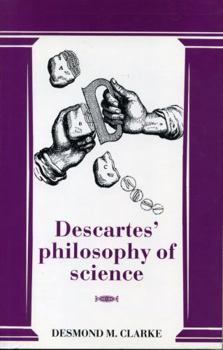Descartes' Philosophy of Science
This major new study of Descartes explores a number of key issues, including his use of experience and reason in science; the metaphysical foundations of Cartesian science; the Cartesian concept of explanation and proof; and an empiricist interpretation of the Regulae and the Discourse. Dr. Clarke argues that labels such as empiricism and rationalism are useless for understanding Descartes because, at least in his scientific methodology, he is very much an Aristotelian for whom reflection on ordinary experience is the primary source of scientific hypotheses. Descartes traditionally has been presented as a classic example of rationalism in science, especially by philosophers who concentrated their attention on the Meditations or the Discourse. A different perspective is gained by reading Descartes as a practicing scientist and by examining his scientific work and correspondence with other seventeenth-century scientists. These texts suggest that the author relies very much on experience, and in some cases on scientific experiments to support his theories or to dispute those of others. Descartes scientific practice is even consistent with a less rationalistic interpretation of the Regulae and the Discourse than is normally defended.
Format:Library Binding
Language:English
ISBN:0271003251
ISBN13:9780271003252
Release Date:October 1990
Publisher:Penn State University Press
Length:224 Pages
Weight:0.90 lbs.
Customer Reviews
0 rating





